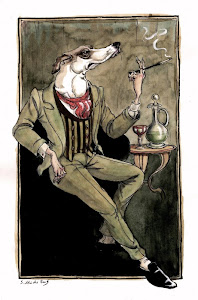 From the glowing darkness of the many churches...there came a trembling, heavy with tears, a drumming and trumpeting; the striving of the human heart is toward evil from childhood on. The steady consonance of this tragic chord, the awareness of being in need of salvation, gave medieval life its depth and boundlessness. Penetrated by the sense of his own limitation, man turned in prayer to a perfection that he could imagine without having witnessed or experienced, an eternal realm beyond the desolation of the earth. And this contrast between a hither and a yon (which, of opposite nature like fire and water, nevertheless interpenetrate) charged the atmosphere with electrical tension, produced deeds like thunderbolts, and illumined the heart with flashes of realization. But now came the new song, Man is good, and its jaunty tune displaced the stern chorale of the past.
From the glowing darkness of the many churches...there came a trembling, heavy with tears, a drumming and trumpeting; the striving of the human heart is toward evil from childhood on. The steady consonance of this tragic chord, the awareness of being in need of salvation, gave medieval life its depth and boundlessness. Penetrated by the sense of his own limitation, man turned in prayer to a perfection that he could imagine without having witnessed or experienced, an eternal realm beyond the desolation of the earth. And this contrast between a hither and a yon (which, of opposite nature like fire and water, nevertheless interpenetrate) charged the atmosphere with electrical tension, produced deeds like thunderbolts, and illumined the heart with flashes of realization. But now came the new song, Man is good, and its jaunty tune displaced the stern chorale of the past. Man, then, is good; that is, insofar as he appears to be bad, the environment is at fault or heredity or society. All people are good; that means all people are equal, equally valuable, with an equal voice equally worth listening to in all matters. Just let's not get too far away from the average type; let's not have any greatness, anything out of the ordinary. Man is good, but not heroic; don't make the mistake of conferring responsibility on him; he should be useful, expedient, idyllic - devaluation of everything tragical, devaluation of everything fateful, devaluation of everything irrational; only what's plausible is granted validity, only what's banal. Man is good. This does not mean that Man should become good, that he should struggle to attain to a goodness, to an inner rank, to a state of being good. No, Man is not supposed to struggle at all, since he's good to begin with. The Party will fight for him, society, the mass, but he should live and enjoy, and if he kills someone he should be consoled, for it is not the murderer but the murdered who is at fault.
Man is good, his nature is rational, and all his sufferings are hygienic and socially controllable--this on the one hand and creation itself on the other. Both were supposed to be accessible to science. From both these ideas came the dissolution of all old bonds, the destruction of the substance, the leveling of all values; from them came the inner situation that produced that atmosphere in which we all live, from which we all drank to the bitter dregs: nihilism.
Gottfried Benn





















3 comments:
Very interesting LBF, thanks for posting!
"What meaneth then this bleating of the sheep?"
Vern Trotter
Vernon ~ Abrahamic gibberish.
Post a Comment